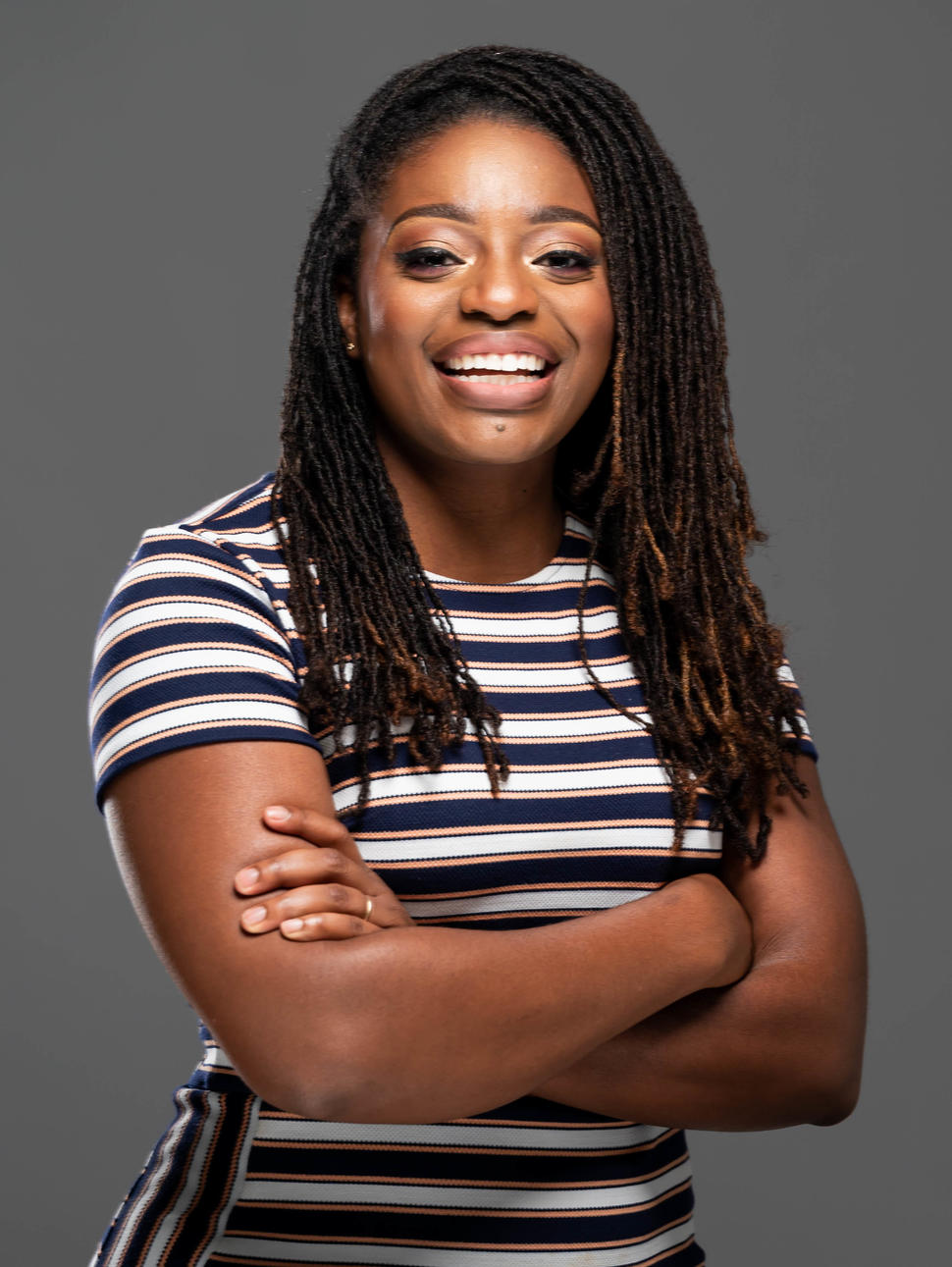What advice do you give to the next generation of scientists?
I think if I could go back to my first moment of curiosity, I would tell myself to really hold tight to the love, the beauty, and the exploration of science.
There can be discouragement and rejection when pursuing science. My advice is to keep your curiosity, especially during those times when you get negative feedback.
I think people often operate in seasons. Not every season is spring or summer, and sometimes winter may be here longer than you like; however, keeping that curiosity will get you through the tough times.
Can you describe your biomedical research?
Sometimes elements of diseases are better understood when we take a step outside of a complex situation. It’s hard to understand everything that’s happening when it’s all mixed together.
Where my program really comes in is we build these small tissue models of different biological processes outside of the body.
We take our model, let’s call it Jell-O, and that mimics the environment of our tissues. We put cells in that Jell-O, and we observe what they do within physiological processes and responses. So, all of that exists under the umbrella of the mission of our group, which is to use the biomaterial models or Jell-O to understand and harness the regenerative capabilities of the immune system as we apply it towards human health.
In my lab, we study the immune system in those Jell-O structures, and specifically investigate health inequities.
We're always trying to answer these questions of what's the immune system doing and how can we study that in a little tissue model that makes it a little bit easier to see what's happening.
Why do you think biomaterials are important for research, including cancer biology?
I think we are starting to see the advent and integration of personalized approaches coming online.
With biomaterial models, including my lab’s engineered tissue systems, we're able to start taking your cells and can put them in a system to determine what cocktail of chemotherapeutics or therapies would be most beneficial for you.
Using these types of biomaterial models, we can grow patient-derived cultures to get a more personalized understanding of the growth dynamics of tumors, where metastasis occurs, and how to effectively treat a cancer or to intercept cancer development.
Additionally, a lot of cancers are known to be more prevalent in certain populations. Our biomaterial model systems can help us understand at a molecular and cellular level why certain populations are at risk for developing certain cancers.
The systems can also help us utilize multiple data sets of patients to understand why certain cancers are prevalent in specific populations and to help address cancer disparities.
Could you share some of your laboratories outreach activities related to research?
One of our main research projects is focusing on lupus, and we support advocacy for lupus research by participating in lupus awareness blogs, as well as having communication and transparency around lupus. These activities connect us from the lab to patients and advocates.
